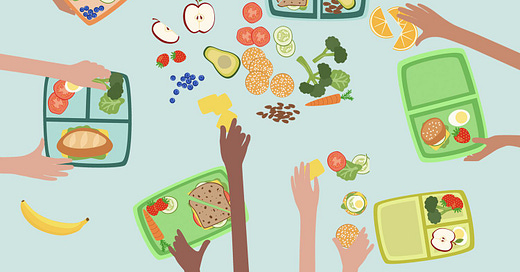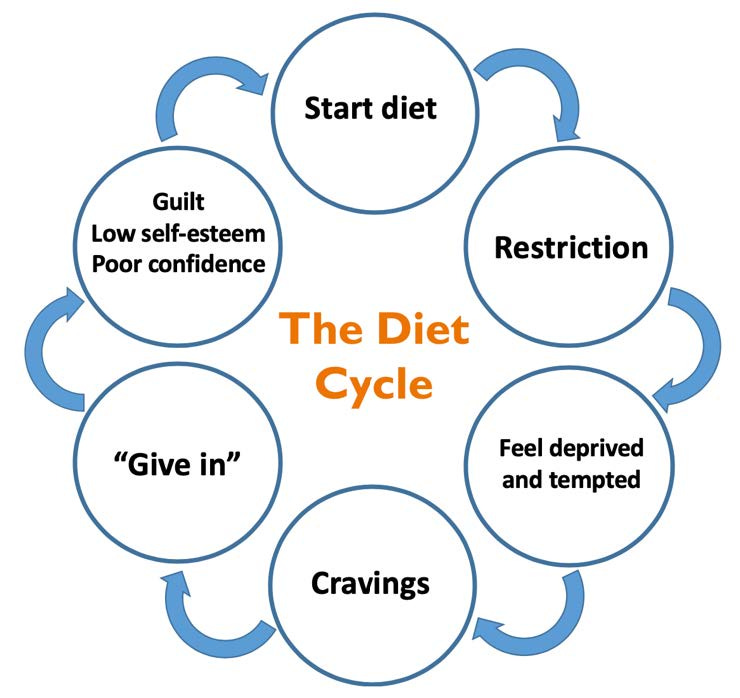If you ask any doctor what the healthiest diet is, I guarantee you they’ll say, “Well, the Mediterranean diet of course!” If you were to ask over at Silicon Valley, the tech bros would say, “Well, Intermittent Fasting!” If you ask Netflix, “A vegan diet, no doubt!” and if you ask me, well, keep reading.
Let’s start with the basics, what do we mean when we say “diet”? I went to Merriam-Webster and found we’ve got a couple of definitions for the term:
“Diet”
di·et ˈdī-ət
food and drink regularly provided or consumed // habitual nourishment.
promoting weight loss (as by depressing appetite) // reduced in or free from calories.
a formal deliberative assembly of princes or estates // any of various national or provincial legislatures (OK? New one to me!).
The word diet as a broad term just means the food and drinks we regularly consume, our habitual nourishment. When we put it in certain cultural contexts, that word now relates to calorie-free, weight loss, and the pursuit of thinness, and that’s usually what we associate it with.
“I’m on a diet so I can’t eat X,” or “I’m on X diet so I can lose X pounds before the wedding,” and “You shouldn’t be eating that, aren’t you on a diet?” Phrases we all know, all too well.
The pursuit of thinness in diet culture has led many (particularly women) to succumb to what we call fad diets.
“Fad diet”
/fæd/ dī-ət
Though no formal definition is found in the dictionary, “Fad diets are eating plans that are often promoted as the “best” or “fastest” approach to losing weight. They can sound like a newly discovered “hack” that promises a better, healthier you.”
The “quick fix” is often touted as the only way to lose weight quickly, without scientific evidence to back its claims, and does not take into account our biology and nutrition adequacy.
Fad diets usually become very popular socially but never become a standard dietary recommendation. They often promote restriction by cutting out major food groups or specific foods and may consist of expensive and unnecessary food products, ingredients, and/or supplements.
Risks/consequences of following fad diets include:
-Severe caloric restriction
-Adverse symptoms (nausea, vomiting, dehydration, constipation, etc.)
-Vitamin and mineral deficiencies
-Increased risk of developing an eating disorder
-Negative health outcomes
-Body dissatisfaction and low self-esteem
-Slower metabolism, muscle loss, and impaired bone health
-Changes in gut microbiome
-Infertility and hormone imbalance
When we succumb to these short-term eating plans, we fall into the Diet Cycle, also known as the Binge-Restriction Cycle. It can be never-ending, as we try new diets in hopes of finding the one that “sticks.” Think alkaline diet, South Beach diet, la dieta de la piña, etc., etc.
Certain fad diets can sound appealing and look like a shiny golden ticket from afar, but following them and hopping from one to the next does more harm than good. Being stuck in the Diet Cycle may take years of unlearning and relearning how to best nourish yourself in order to break free.
5 Ways to Spot a Fad Diet:
Beware of a diet that…
Promises short-term weight loss and quick fixes, and does not teach you how to improve eating habits and food choices long-term.
Encourages you to: eliminate, buy, or glorify certain foods or food groups.
The evidence behind it is not strong or non-existent.
Is endorsed by artists, models, spokespersons, or other famous people.
Quickly becomes popular, and just as quickly fades away once a “new” diet comes out.
On the other side of the coin, we have those who follow certain diets or dietary patterns in pursuit of health and/or longevity.
If the Oscar’s were given to diet plans, the Mediterranean diet would sweep the floor. It’s been ranked #1 for 2024 by U.S. News & World Report, for the 7th consecutive year. It’s followed by the DASH diet at number 2 (Dietary Approach to Stop Hypertension) and the MIND diet at number 3 (Mediterranean-DASH Intervention for Neurodegenerative Delay-what a mouthful!).
A panel of 43 doctors, dietitians, and other health experts examine the diet quality, health risks and benefits, long-term sustainability, and evidence-based effectiveness of 30 dietary plans to determine which takes the crown.
When compared to a Western diet, these top 3 patterns focus on adding more plant-based foods, healthy fats, and limiting processed foods, and are overall higher in fiber and antioxidants. They all exist with different goals in mind; the DASH diet was structured to help lower blood pressure, the Mediterranean diet to lower overall cardiovascular risk and disease, and the MIND to be neuroprotective and help with cognitive function.
These are very well-researched and backed dietary patterns because time and time again they have shown positive results when related to various chronic conditions (i.e. diabetes, hyperlipidemia, dementia, etc.) But all things have their time and place, and as a practitioner, I find at times, that promoting said diets isn’t the best way to connect with a patient and might even deter them from further counseling.
In an era of globalization with heightened migration, preserving traditional cuisines and customs is of utmost importance to many. Immigrants work hard to maintain their traditional foods as part of their ethnic identity and heritage. By upholding a diet so high up and recommending it without guidance and explicit explanation, patients might give up their cultural foods and think they are “bad for their health.”
In reality, many cultures provide an abundance of nutritious foods and eating patterns, and by providing recommendations in a contextualized format, change and acceptance of change are more likely to occur. Culture influences people’s perspectives on health, healing, medication/alternative therapy use, food choices, and eating patterns.
Meeting in the middle and shifting towards culturally sensitive recommendations that encourage the consumption of veggies/whole grains/healthy fats/plant-based and lean protein just like the Mediterranean diet does might be a better way of eliciting healthy habits and behavior change.
So what’s the best diet, then?
The secret to healthy eating is recognizing that our health (or weight) IS NOT determined by ONE meal or ONE food; it is instead influenced by our long-term eating patterns.
Nutrition is not one size fits all, even the best-ranked diet knows it as it tells you what to eat, but not how much/when.
The best diet to follow is one that:
Meets your needs (energy, fiber, micronutrients, protein, etc.).
Keeps you satisfied and satiated throughout the day.
Does not lead to extreme cravings or promote unnecessary restrictions.
Fits into your schedule and preferences, and takes into account any present health conditions or allergies.
Is flexible to day-to-day changes.
Find what works for you. Adopting certain dietary patterns and adapting them to your lifestyle, preferences, and schedule will help them be the best for you.
Strive to develop healthier eating habits that are not only sustainable but also, and this cannot be emphasized enough, ensure you're eating enough; your dietary pattern should offer flexibility to avoid strict restrictions and undereating, remember what doesn’t bend, breaks.
Unless driven by genuine preferences or medical necessity, your diet shouldn't eliminate entire foods or food groups. If you focus on subtracting from your diet and have a rigid mindset around eating, it won’t be a sustainable plan.
The best diet combines adherence with flexibility, allowing you to find a sense of peace and sustainability in your nutritional choices from day to day.
Keep chewing!







Thank you for this! Especially reminder us around the definition of the word diet. The marketing around that word has escalated completely and has gotten a negative rep.
My biggest takeaway: The secret to healthy eating is recognizing that our health (or weight) IS NOT determined by ONE meal or ONE food; it is instead influenced by our long-term eating patterns.